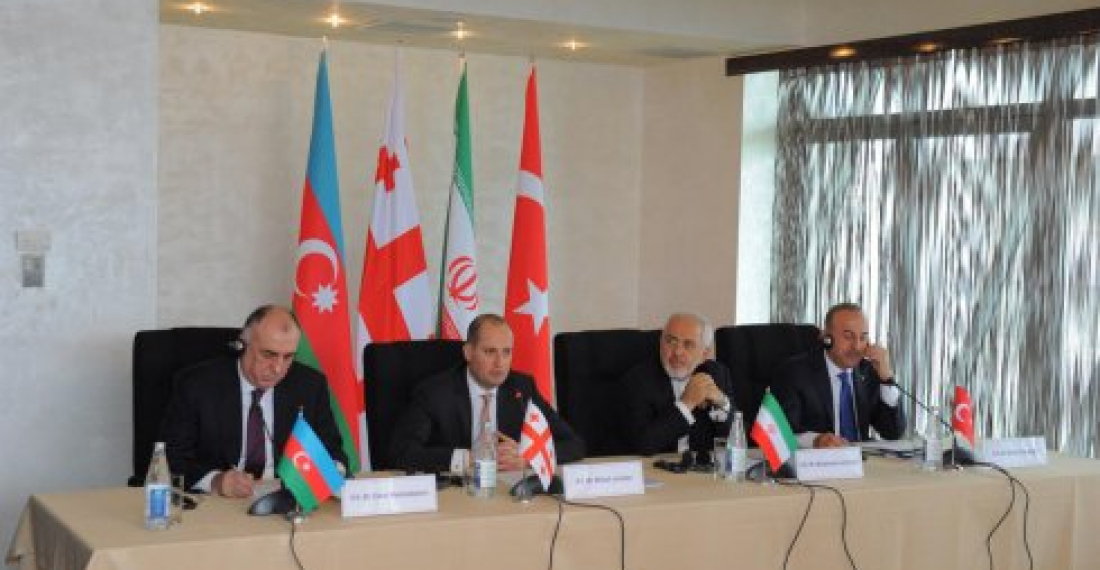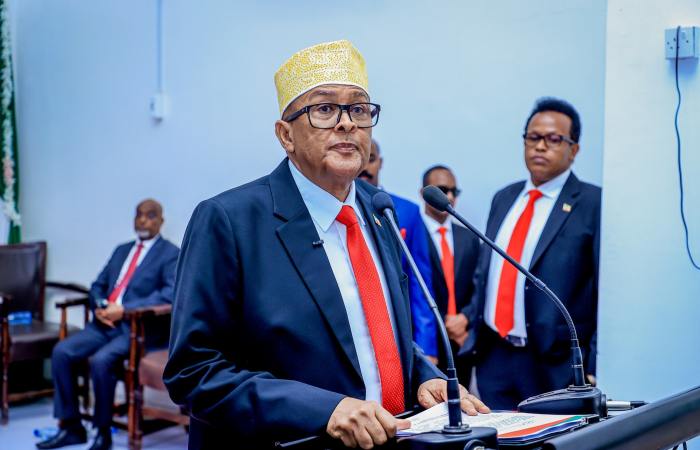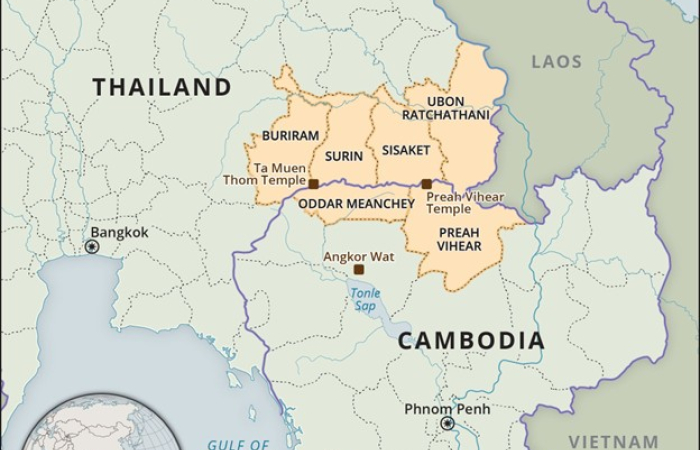Azerbaijan, Georgia, Iran and Turkey issued a statement after a meeting of their foreign ministers in Baku on 15 March reaffirming their commitment "to further enhance solidarity and cooperation" between them.
Azerbaijan's Elmar Mammadyarov, Georgia's Mikheil Janelidze, Mohammad Javad Zarif, of Iran and Mevlüt Cavusoglu of Turkey, held their first meeting in this Quadrilateral format on 15 March 2018 in Baku.
The four ministers later issued a statement reaffirming their commitment "to further enhance solidarity and cooperation among the peoples of the four countries based on deep-rooted historical and cultural ties that will serve to strengthen peace, stability, prosperity in the region".
The Ministers emphasized their common interest "to strengthen regional peace and stability, [and] in this context stressed their commitment to principles of international law on respect for sovereignty, territorial integrity and inviolability of internationally recognized borders of states as well as peaceful settlement of all conflicts in the region".
In their statement the four Ministers underlined the significant steps taken to increase the transit potential of the four countries geographically favourably situated on international transit corridors in order to integrate their national transport infrastructure to the international transit system.
They also "reiterated their firm commitment to strengthen their cooperation in the fight against terrorism, violent extremism and separatism in all their forms and manifestations, transnational organized crime, illicit trafficking in narcotic drugs and their precursors, arms, crimes against cultural and historical heritage, cybercrime, human trafficking and smuggling of migrants".
source: commonspace.eu with the press service of the Ministry of Foreign Affairs of Azerbaijan.
photo: The foreign ministers of Azerbaijan, georgia, Iran and Turkey met in Baku on 15 March 2018 (picture courtesy of TREND news agency).






